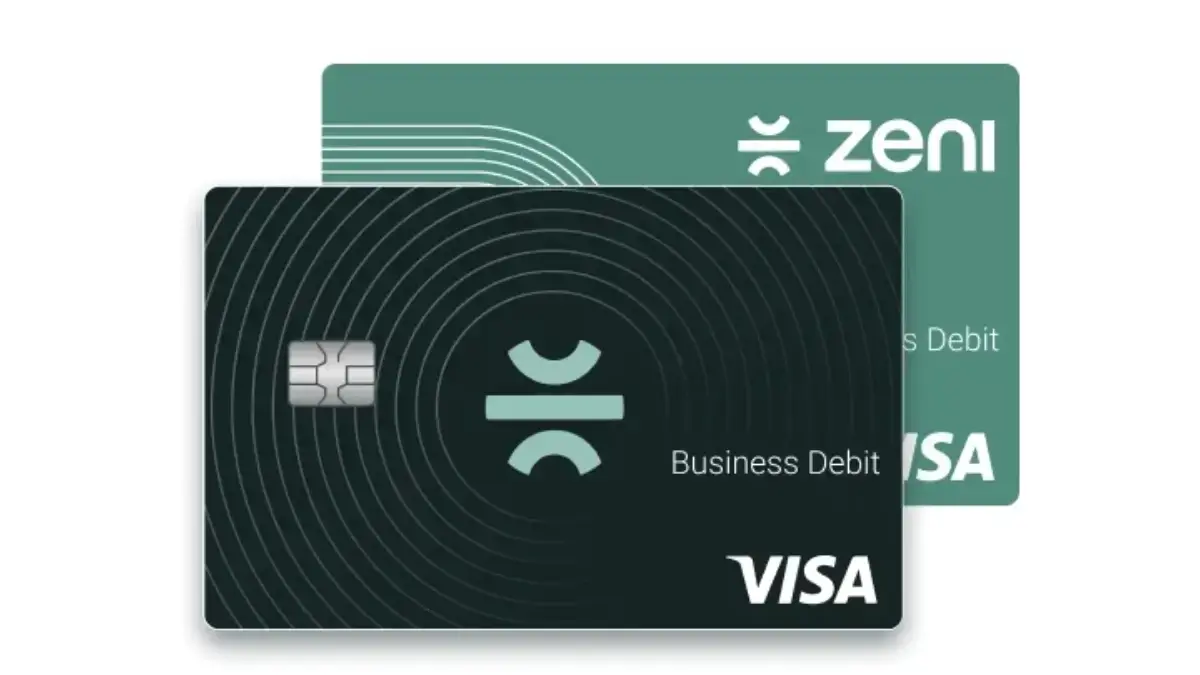
Kudos has partnered with CardRatings and Red Ventures for our coverage of credit card products. Kudos, CardRatings, and Red Ventures may receive a commission from card issuers. Kudos may receive commission from card issuers. Some of the card offers that appear on Kudos are from advertisers and may impact how and where card products appear on the site. Kudos tries to include as many card companies and offers as we are aware of, including offers from issuers that don't pay us, but we may not cover all card companies or all available card offers. You don't have to use our links, but we're grateful when you do!
Is Nationwide Homeowners Insurance Worth It? Our 2025 Review Breaks It Down.
July 1, 2025


Nationwide Homeowners Insurance Overview
Nationwide is one of the 10 largest U.S. home insurers, known for including certain coverages in its standard homeowners policies that other companies often charge extra for. Founded in 1926, Nationwide has grown into a Fortune 100 company serving millions of policyholders. Its homeowners insurance is available in 44 states plus Washington, D.C., meaning it offers coverage across most of the country (notably, it’s not available in a few states like Florida). Nationwide also boasts strong financial strength (A+ rating from AM Best) and a solid reputation for customer service, giving homeowners confidence that claims will be paid and support will be there when needed.
Despite its broad reach, Nationwide remains a customer-friendly insurer. In recent surveys, a high percentage of Nationwide’s customers reported being satisfied with their experience. For example, 82% of Nationwide customers said they were satisfied with the claims process, and the company scored above the industry average in J.D. Power’s 2025 property claims satisfaction study. Nationwide even had fewer consumer complaints than expected for a company its size, according to the National Association of Insurance Commissioners. These metrics suggest that Nationwide delivers on its promises and supports its customers well when they file a claim.
Coverage and Unique Features
Nationwide’s homeowners policies provide all the standard coverages you’d expect, including protection for your dwelling (the structure of your home), other structures, personal property, additional living expenses (loss of use), personal liability, and guest medical payments. In addition to these basics, Nationwide stands out by including extra benefits in its standard policy at no additional cost.
Notably, all Nationwide home insurance policies automatically include ordinance or law coverage and even a small benefit for stolen or unauthorized use of credit cards or checks. In fact, a Nationwide policy covers up to $500 in losses from unauthorized credit/debit use, forged checks, or counterfeit money, and you can upgrade that limit up to $10,000 if needed. These built-in perks might cost extra at other insurers, but Nationwide provides them standard.
Nationwide also offers some unique safety features for policyholders. For example, customers in most states can get a free Ting smart sensor device that monitors your home’s electrical network to detect fire hazards, including five years of monitoring service and up to $1,000 toward fixing any issues it finds. This proactive perk can help prevent electrical fires before they start. It’s an example of how Nationwide adds value to its policies beyond just paying claims.
Beyond the basics, you can customize your Nationwide homeowners coverage with a variety of optional add-ons if you need extra protection. Some popular endorsements include:
- Extended replacement cost coverage – increases your dwelling coverage limit (helpful if rebuilding costs unexpectedly exceed your base coverage).
- Brand New Belongings – Nationwide’s replacement cost coverage for personal property, which pays to replace or repair your items with new equivalents rather than depreciated value.
- Better Roof Replacement – if your roof is damaged by a covered peril, this option pays to rebuild it with stronger, upgraded materials.
- Water backup coverage – protects against damage from backed-up sewers or sump pump overflows (which standard policies don’t cover).
- Service line coverage – covers the cost of repairing or replacing underground utility lines on your property (e.g. water, sewer, power lines) if they fail.
- Identity theft protection – helps monitor and restore your identity if you’re the victim of identity theft.
- Valuables Plus – increased coverage for high-value items like jewelry, art, or collectibles beyond normal policy sub-limits.
These and other optional coverages let homeowners tailor their policy to fit their needs. For example, if you have an expensive jewelry collection or an older home with higher rebuild costs, Nationwide likely has an add-on to ensure you’re fully protected. It’s worth noting that standard Nationwide policies do not cover certain perils like flooding, earthquakes, landslides, or routine wear and tear (no typical homeowners policy covers those).
However, Nationwide can often provide separate policies or riders for some of these gaps (for instance, you can purchase flood insurance or add earthquake coverage by endorsement). Overall, Nationwide’s range of coverage options is comprehensive, and the inclusion of extras like code upgrade coverage in every policy gives it an edge in value.
Shopping for homeowners insurance? Remember to compare quotes from multiple insurers, not just one. Kudos can help streamline this process by quickly comparing top carriers and finding any hidden perks or discounts – all for free and with zero hassle. Taking a little time to shop around (with smart tools like Kudos) can potentially save you hundreds on your annual premium.
Rates and Discounts
When it comes to cost, Nationwide’s homeowners insurance rates tend to be above the national average. The average Nationwide home insurance premium is about $2,610 per year, according to a NerdWallet analysis – that’s higher than the U.S. average of $2,110. In other words, Nationwide is roughly 20% more expensive on average than typical competitors nationwide.
Keep in mind that actual premiums vary widely based on your home’s location, the coverage limits you choose, your deductible, and personal factors like your credit and claims history. In some states or situations, Nationwide can still be very competitive on price. But generally, if you choose Nationwide, you might pay a bit more for the robust coverage and service.
Thankfully, Nationwide offers many discounts that can help offset its higher base rates. Homeowners can qualify for savings in a variety of ways. Available discounts include bundling your home and auto policies with Nationwide, purchasing a newly built or new-to-you home, maintaining a claims-free record, installing protective devices like security systems or smoke alarms, having a newer impact-resistant roof, using approved smart home technology, living in a gated community, and even having continuous prior insurance coverage with another carrier before switching to Nationwide.
There’s also a renovation credit if you’ve recently updated your home’s plumbing, heating, electrical or other systems, since modern upgrades reduce the chance of claims. Many of these discounts are stackable, meaning a homeowner could qualify for several and substantially reduce their premium.
In fact, some of Nationwide’s discounts are quite substantial. The largest discount is for a brand new home – if your home was recently built (or you purchased it new), Nationwide rewards you with a discount that can slash your premium by over 50%. Bundling home and auto insurance can knock off around 15–20%, and installing protective devices or a security system can yield smaller (but still worthwhile) discounts in the single-digit percentage range.
Even staying claim-free or loyal to Nationwide for multiple years can earn you modest discounts on your renewal premiums. By taking advantage of these programs, many customers pay well below that $2,600 average. It’s a smart idea to ask an agent or check Nationwide’s website for all discounts you qualify for, as the savings can be significant.
Finally, consider your payment options to save a bit more. Nationwide (like many insurers) offers a small discount if you pay your annual premium in full upfront or opt for automatic payments. While these particular savings are modest (often a few percent or less), it’s still money in your pocket.
And if your insurer allows it, using a rewards credit card to pay your insurance bill could earn you cashback or points – just be sure no fees apply for credit card payments. Every bit of savings helps when insuring your home, and Nationwide provides plenty of ways to bring the cost down closer to your budget.
Customer Satisfaction and Ratings
When evaluating an insurer, price isn’t everything – customer satisfaction and claim reliability are crucial. Nationwide performs well on this front. As mentioned earlier, it earned an above-average score in J.D. Power’s 2025 Property Claims Satisfaction Study, scoring 709 out of 1,000. A high claims satisfaction score is a good sign that Nationwide handles claims fairly and efficiently, which is when insurance matters most.
In an independent survey by Insurance.com, 93% of Nationwide customers said they were satisfied overall with the company – a strong vote of confidence. Importantly, Nationwide’s policyholders seem willing to stay with the company: about 86% said they plan to renew their homeowners policy with Nationwide. High renewal intent often reflects a positive experience in both pricing and service over time.
Customers also trust Nationwide at a level comparable to other big insurers. Around 83% of Nationwide homeowners insurance customers said they trust the company. Slightly fewer – roughly 76% – would actively recommend Nationwide to friends or family. That recommendation rate is a bit lower than some competitors’, possibly due to Nationwide’s higher pricing or specific negative experiences some have had. Nonetheless, the majority of customers are happy with what they’re getting. Nationwide ranked No. 5 in Insurance.com’s 2025 “Best Home Insurance Companies” list, reflecting its strong balance of coverage options, customer service, and financial stability.
Another reassuring metric: Nationwide has a below-average complaint rate. Over the past three years, it logged fewer consumer complaints to state regulators than would be expected for an insurer of its size. This indicates that serious customer problems (relative to how many policies Nationwide has in force) are less common than usual. While no insurance company is perfect, Nationwide’s complaint record and solid reputation suggest most customers have their claims paid and issues resolved without a lot of hassle.
One area to keep in mind is availability. As noted, Nationwide does not offer homeowners insurance in every single state. If you live in certain high-risk states (for example, Florida, Louisiana, or a handful of others prone to hurricanes or other risks), Nationwide homeowners policies might not be an option. Always check that an insurer operates in your state. For those who can get Nationwide coverage, though, you’ll be backed by a large, financially strong company with decades of experience.
Overall, Nationwide’s homeowners insurance is well-regarded for its comprehensive coverage and dependable service. You might pay slightly more for it, but many customers feel the extra cost is worth the peace of mind and the perks included. In the next section, we answer a few common questions about Nationwide to help round out your understanding.
Nationwide Homeowners Insurance FAQ
Is Nationwide a good homeowners insurance company?
Yes, Nationwide is generally considered a good homeowners insurance provider. It’s one of the nation’s largest insurers and earned high marks in customer surveys and independent ratings. For instance, Nationwide had an above-average score in J.D. Power’s 2025 claims satisfaction study and an A+ financial strength rating from AM Best. Most Nationwide customers report being satisfied with the service and claims handling. While it’s not the very cheapest option, Nationwide’s reliable coverage and support make it a strong choice for many homeowners.
Does Nationwide homeowners insurance cover flood damage?
No, Nationwide’s standard homeowners insurance does not cover flood damage. Like virtually all home insurance companies, Nationwide excludes flooding (as well as other disasters like earthquakes) from its basic policies. You would need a separate flood insurance policy (often through the National Flood Insurance Program or a private flood insurer) to be protected against flood-related losses. However, Nationwide does offer other optional coverages for hazards not covered by the standard policy (for example, you can add earthquake coverage in some states, or buy water backup coverage for sewer backups), but floods specifically require a standalone policy.
What discounts does Nationwide offer on homeowners insurance?
Yes, Nationwide offers a wide range of discounts to help lower your homeowners insurance premium. You can save by bundling your home insurance with an auto insurance policy from Nationwide, which can knock off around 15–20%. Other discounts include savings for buying a newly constructed home, remaining claims-free, installing protective devices like alarms or sprinkler systems, having a newer or impact-resistant roof, using approved smart home technology, living in a gated community, and even a loyalty discount for continuous insurance coverage. Nationwide also gives credits for recent renovations to your home’s plumbing, electrical, or HVAC systems. By combining these discounts, policyholders can often significantly reduce their rates.
How much does Nationwide homeowners insurance cost on average?
Nationwide’s home insurance costs about $2,600 per year on average, according to a NerdWallet analysis. This average assumes a policy with $300,000 in dwelling coverage, $300,000 liability, and a $1,000 deductible for a homeowner with good credit. Nationwide’s average rate was higher than the national average. Your own cost could be lower or higher depending on factors like your home’s value, location, age, claims history, and coverage choices. In some states, Nationwide is quite competitively priced, while in others it may be more expensive than rivals. It’s always wise to get a personalized quote. Also, remember that applying eligible discounts can substantially reduce your actual premium from that baseline average.
Does Nationwide offer homeowners insurance in Florida?
No, Nationwide currently does not offer new homeowners insurance policies in Florida. Nationwide’s home insurance is available in 44 states and Washington, D.C., but Florida is one of the few states where Nationwide doesn’t operate for home coverage. If you live in Florida, you’ll need to look at other insurers for homeowners coverage. Always check an insurer’s state availability – even big companies like Nationwide don’t write policies everywhere, especially in regions with high hurricane risk.
Conclusion
.avif)
Nationwide homeowners insurance offers robust coverage with valuable extras, backed by a company known for financial strength and dependable service. If you’re looking for a policy that includes a few built-in perks (like code upgrade coverage and identity theft protections) and you appreciate having a responsive insurer with high claims satisfaction, Nationwide is a compelling option.
Its premiums are on the higher side, but thanks to a long list of discounts, many customers can still find a reasonable rate with Nationwide. The company’s strong customer satisfaction scores and low complaint levels indicate that most policyholders are happy with the protection and service they receive.
Ultimately, the “best” homeowners insurance comes down to your specific needs and budget. Nationwide is a great choice if you want comprehensive standard coverage and are eligible for several discounts to bring the cost down. However, it’s always prudent to compare quotes from a few companies before deciding. By shopping around, you can ensure you’re getting the best value for the coverage you need. If Nationwide’s quote is a bit high, another insurer might offer a similar package for less – or vice versa.
Before you finalize your decision, take advantage of tools that make comparison shopping easier. For instance, Kudos can quickly gather personalized quotes from top home insurance carriers and highlight any hidden perks or savings for you. That way, you’ll have a full view of your options.
With a little research (and maybe a helping hand from Kudos), you can secure the right homeowners policy that protects your home and fits your wallet. Protecting your home is vital, so make sure you choose an insurer that gives you peace of mind – and Nationwide certainly aims to do just that.

Supercharge Your Credit Cards
Experience smarter spending with Kudos and unlock more from your credit cards. Earn $20.00 when you sign up for Kudos with "GET20" and make an eligible Kudos Boost purchase.
Editorial Disclosure: Opinions expressed here are those of Kudos alone, not those of any bank, credit card issuer, hotel, airline, or other entity. This content has not been reviewed, approved or otherwise endorsed by any of the entities included within the post.





























.webp)
.webp)
.webp)
%20(1).webp)
.webp)
.webp)


.webp)